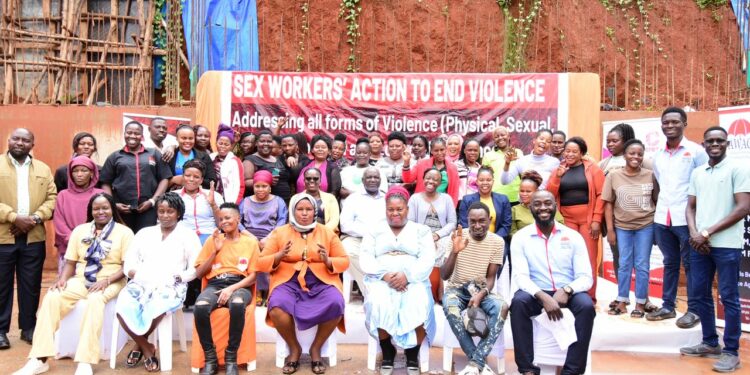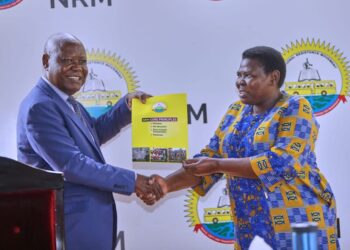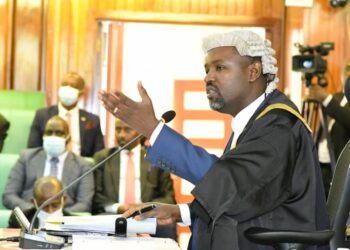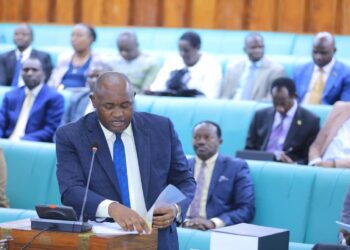The Alliance for Women Advocating for Change (AWAC) celebrated a monumental achievement on Monday when it unveiled its new home during the International Day for the Elimination of Violence Against Women.
This milestone also marked the beginning of the 16 Days of Activism Against Gender-Based Violence, with AWAC spearheading a community-focused campaign under the theme: “Sex Workers’ Action to End Violence: Addressing All Forms of Physical, Sexual, Emotional, and Economic Violence.”
The event symbolised both resilience and hope as AWAC emphasised its commitment to combating systemic violence against female sex workers and marginalised women, despite facing numerous challenges.
The story of AWAC’s journey to their new home began in 2021, when their safe space, a vital hub for skilling programs, harm-reduction services, and emotional support, was abruptly shut down due to eviction. Landlords cited “moral concerns” over hosting sex workers, a move that Macklean Kyomya, Team Leader of AWAC, described as a painful manifestation of systemic and economic violence.
“We were evicted without warning, and it was devastating,” Macklean recalled. “That space had provided essential services to over 19,000 women. Losing it not only denied us physical shelter but also the ability to offer life-saving healthcare, emotional support, and harm-reduction programming.”
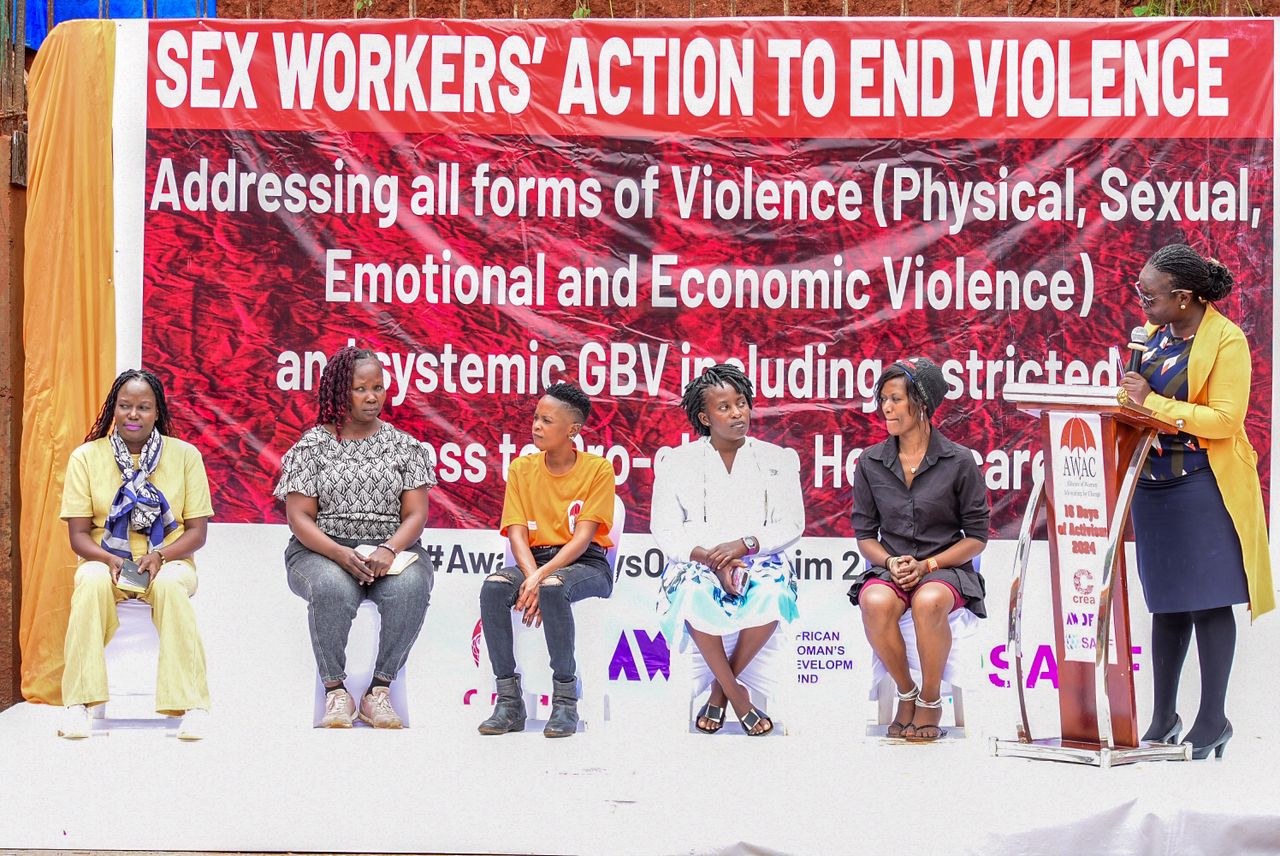
Determined to rebuild, AWAC began the arduous task of finding a new home. They purchased a plot of land, starting with nothing but overgrown trees, and slowly began construction. Support poured in from organizations like the Global Fund for Women, the French Embassy, and the Golden Center for Women’s Rights, alongside contributions from staff, board members, and community members.
Now, AWAC’s new space stands as a symbol of perseverance. Although still under construction, the site features a temporary cabin that serves as a store. The organization is actively seeking $37,000 to complete the second phase of construction, which will include permanent structures to house their services and provide a haven for the women they serve such as safe spaces, a hospital and a skilling centre for empowering female sex workers.
“This isn’t just about building walls; it’s about restoring dignity and safety for marginalized women,” Macklean emphasized. “Our space is a testament to our resilience and a critical tool in the fight against all forms of gender-based violence.”
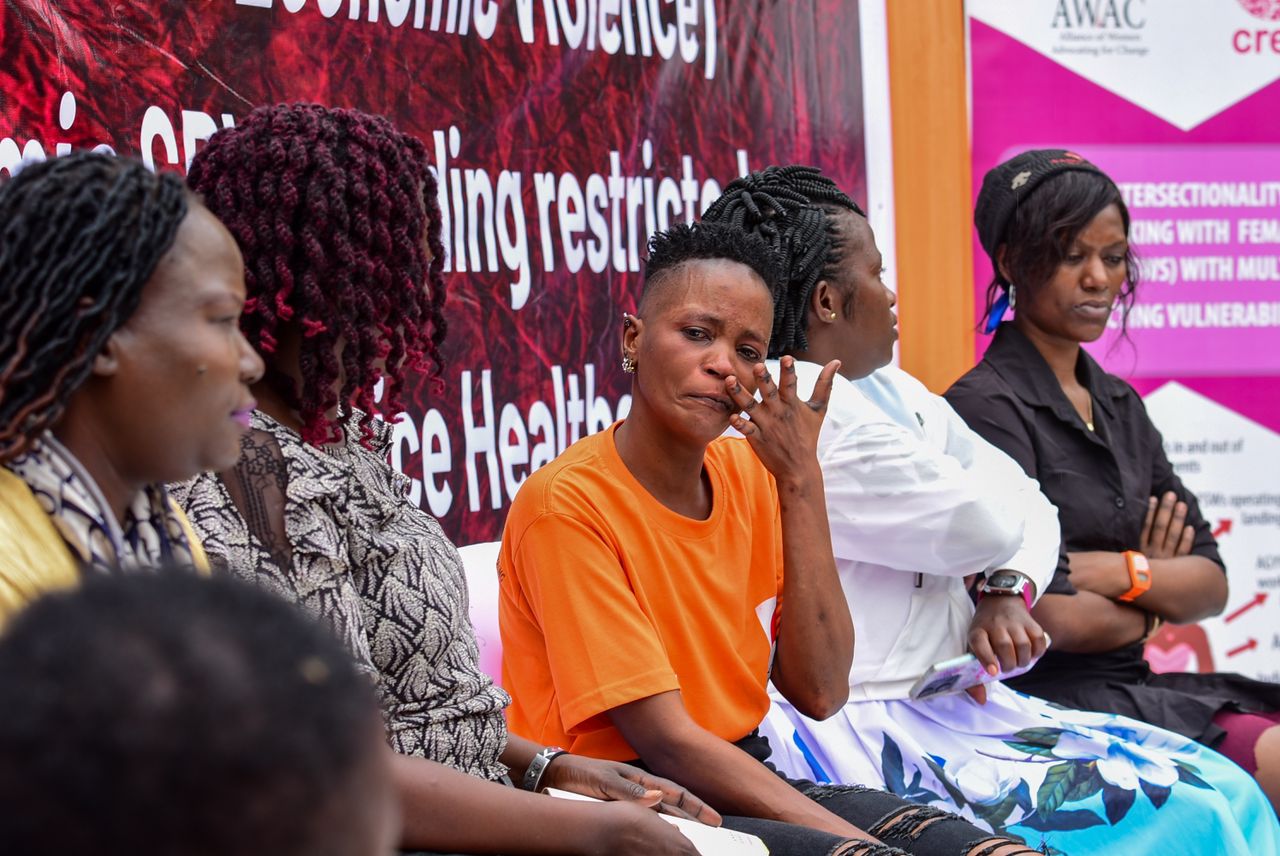
Despite the challenges, AWAC remains hopeful. The new space represents a fresh start and an opportunity to expand its reach, providing services to thousands of women in need. The temporary cabin may not shield them entirely from the rain, but it stands as a powerful reminder of their determination to rise above adversity.
“This home is a beacon of hope,” Macklean said. “It’s proof that, together, we can overcome systemic barriers and create safe spaces where every woman has the chance to thrive.”
16 Days of Activision
The unveiling of the new space coincided with the launch of AWAC’s campaign for the 16 Days of Activism. The campaign focuses on ending violence in all its forms physical, sexual, emotional, and economic while addressing systemic issues such as restrictive laws, denial of healthcare, and economic injustices.
“Violence against women manifests in countless ways, from physical abuse to systemic barriers that deny us access to basic services,” Macklean noted. “Our eviction itself was an act of violence, stripping us of the ability to provide care and forcing us to rebuild from scratch.”
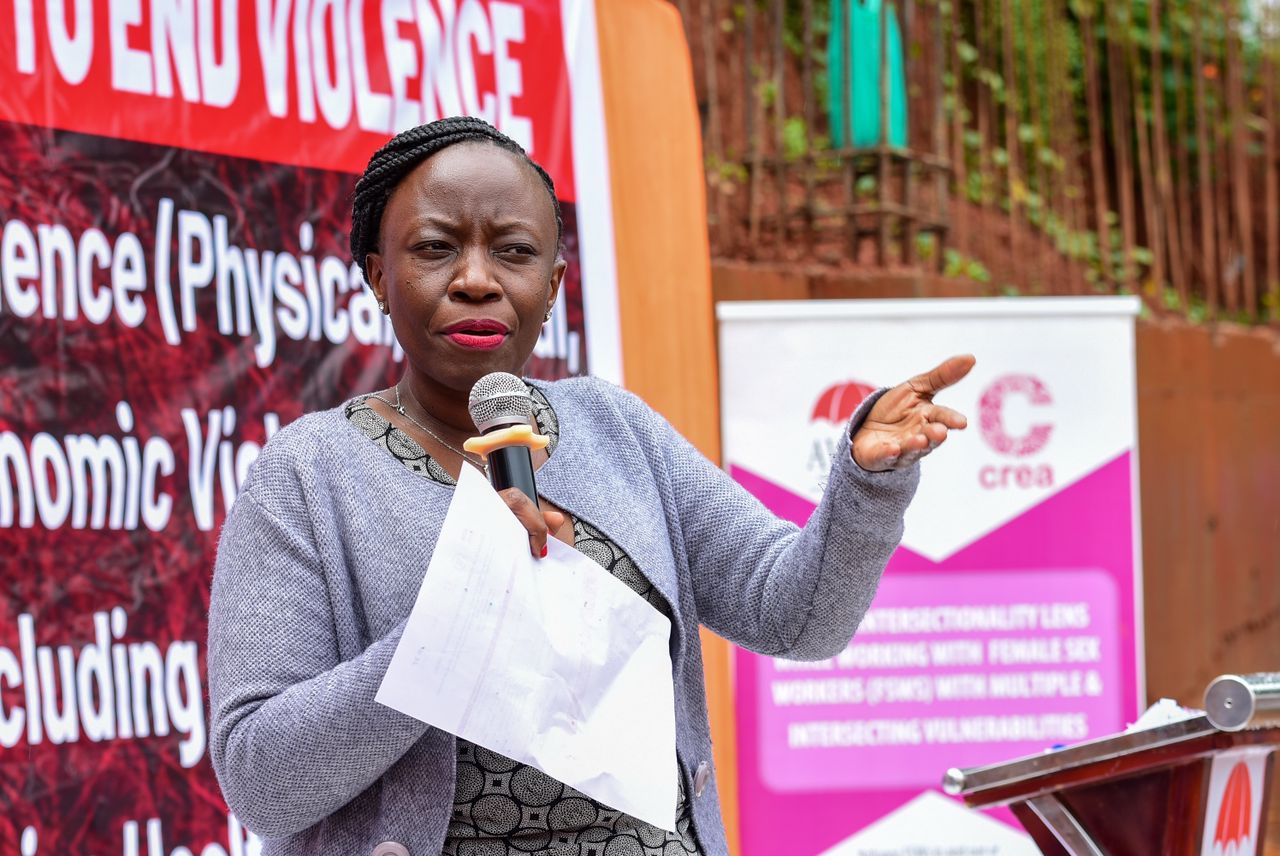
The campaign will include advocacy efforts, community mobilization, and resource-sharing initiatives aimed at addressing the unique challenges faced by female sex workers. AWAC is calling on government partners, civil society, and individuals to support their cause and join the fight against gender-based violence.
The Executive Director of the Centre for Human Justice Uganda and Board Chair, AWAC Ms. Immaculate Owomugisha, also added her voice and revealed that there is still a big gap in the way sex workers are mistreated by both the community and law enforcers.
“We’ve had sex workers share challenges around stigma and discrimination, and challenges of accessing medicine, especially those living in the water zone of the islands. We’ve had challenges of those with disabilities, and sex workers with disabilities telling us that they cannot even communicate with justice. And what is this telling us as to why we still have challenges and gaps, sex workers?”
She appealed to those in power that it is time for Uganda to have laws that protect the rights of every woman, every girl, no matter the job or no matter the identity these people are doing.
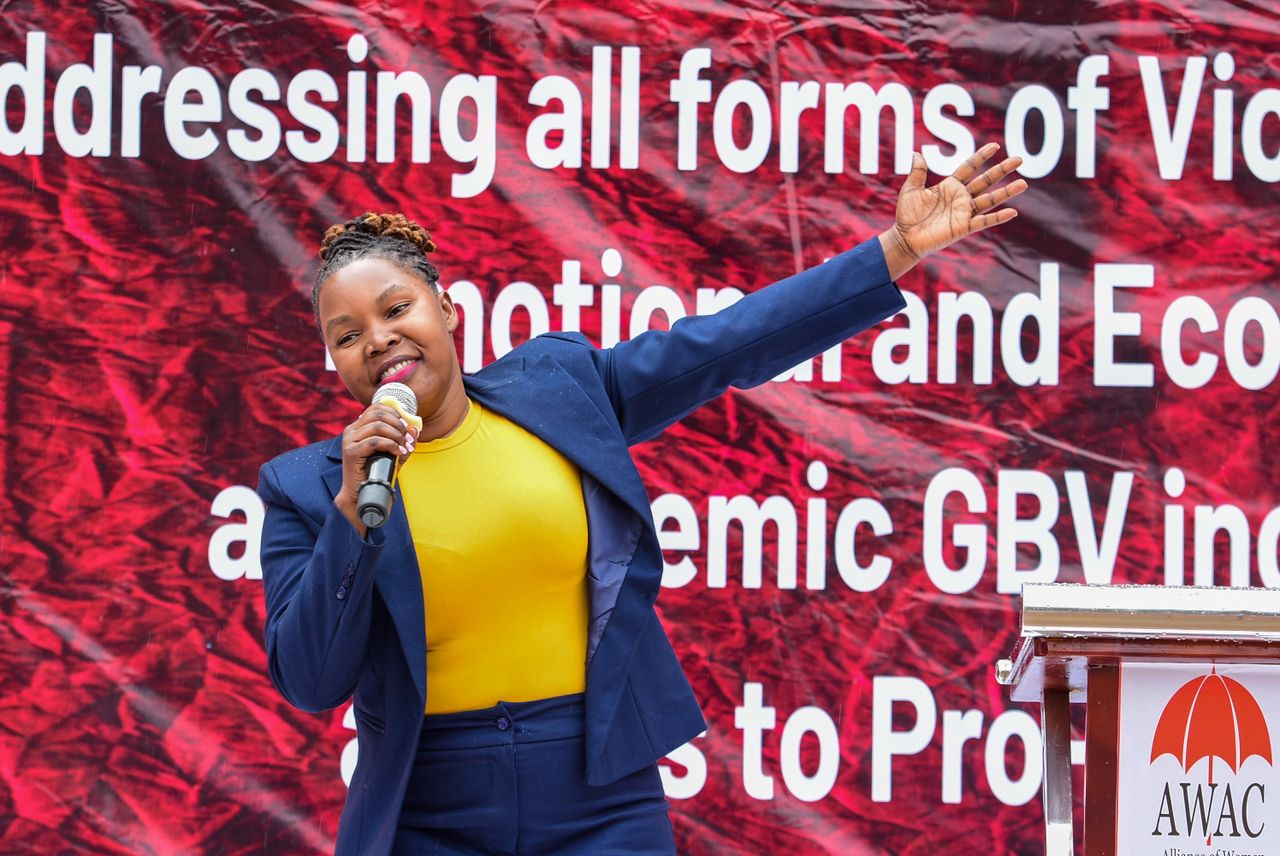
“On the issue of how are we problems prioritising sex work and mostly accessing government resources? We are talking about economic justice. We learned today that there are very many programs for the government. We have now, a program that is run by the Ministry of Gender; GROW. This program’s requirements don’t favour sex workers. If you’re asking for land titles. Even beyond sex workers, how many women have land titles? We know most of the women, buy land and end up with the land being the name of their partners, the male partners. So women, regardless of sex work, are still challenged in owning property.”
Sheila Muwanga a Human Rights activist, explained that a way of curbing the acts of violence, especially on sex workers is for the country to unit “The call is to unite against GBV, female sex workers are very much vulnerable to a lot of abuses, emotional and, physical abuse they also have challenges with accessing, medical services, and they have been abused by non-state actors, law enforcers, and their families, communities, therefore, this day is befitting to commemorate and we must all unite and fight these acts of violence.”
Female sex workers from various parts of the country have shared harrowing accounts of discrimination and mistreatment by their communities, healthcare providers, and law enforcement officers. Their stories highlight the systemic barriers they face, including stigma, abuse, and denial of access to essential healthcare services, further marginalizing them and jeopardizing their well-being.
Do you have a story in your community or an opinion to share with us: Email us at editorial@watchdoguganda.com


